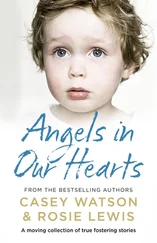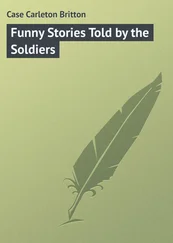“Going home?” the driver said. She made it sound like a forgotten place, somewhere long abandoned. The driver was older than Josephine, with thick black hair whose curls obscured her face. A black spider, or was it a baby octopus — all those legs — did a jig across Josephine’s vision: Look at me! She pictured the cab driver at home, chopping carrots with her one good arm on a chopping block, the knob of her slender elbow bobbing up and down with the quick movement, her short, careful nose, deliberate on her otherwise round and sprawling face. She wanted to ask the woman, “What were you making? What did you do with all those carrots?” But when she looked at the picture of the driver on the copy of her driver’s license taped to the back of the front seat, she saw a face pained with angles.
Still, Josephine felt it strongly, this memory that didn’t belong to her. Was it a memory of her mother? Josephine had moved on with her life in the ten years since her mother’s death — crossed state borders, found a satisfying career that put her experiences with misery to good use. She hadn’t run away — she’d grown up, grown older. And yet she’d gone nowhere. Here she was, a grown woman in the back of a cab, longing for the time her mother took her camping as a child, on a beach thousands of miles away from where she was now. Memory was a cruel thing. Her mother had found driftwood and seaweed to build a fire on the sand, under the white light of a full moon. She remembered the pine needles between her toes once she took off her shoes. Her mother said they should feel the earth directly. They ate rosehips for dinner, picked them off bushes and held as many as they could in their hands. Mouths full of seeds, they nibbled around the taut skin. The waves threatened to steal them away in the night where they slept on the beach huddled together on a single blanket her mother took off the bed on the way out.
“This you?” the driver asked.
“Yes, it’s me,” Josephine said though her neighborhood was for a moment unrecognizable. Josephine thought of her car still sitting in the grocery store parking lot. When she got out of the cab, the little girls across the street were sitting on their crumbling stone wall.
“What if I was born in a different family and you weren’t my sister?” one said to the other, who burst into tears and ran inside.
“What a baby,” the first girl said out loud, for Josephine to hear. She flipped her hair over her shoulder, turned, and followed her sister inside.
The light dazzled the periphery of the black dots. Go, the black dots hummed. The glare of the moon shone off a bottle broken on the sidewalk, onto Richmond’s car parked at an especially haphazard angle beside the curb in front of Theresa’s house.
“The street is black tar slivers,” Josephine said out loud as she put the key in the front door. She pretended she was speaking into a tape recorder, recording her observations for posterity, though she was too old now for children. “The light coming from the windows of the house across the street is like an exploded star.”
Go, the black dots hummed again, pulsing. Josephine knew what she had to do. She went into the kitchen and cleaned the knife. She traced the outline of her eyes with the sharp edge, imagining the cut at the root that would rid her of the fear. There was a knock on the door.
When Josephine had woken up on the beach that morning, she and her mother were remarkably still under the blanket. She had hoped even then, before things got worse, that they’d be carried out to sea. They went back to the house where her father welcomed them reluctantly back to civilization. He ran his hand across his forehead. This would become his signature gesture, meaning he was tired and couldn’t talk to a woman whose possibilities he’d exhausted and the child whom she’d taken as an accomplice.
“Josephine, it’s party time,” Theresa called through the closed door. Tap, tap. “Ready or not, happiness is coming to get you.”
Josephine felt her blood flow through her veins; her heart like a fist pounding on the walls of her chest; her breath moving in and out of her lungs. Hers was a different life in a different body. She put the knife back in the drawer and pressed on her closed eyelids with her fingers, tentatively at first and then harder, so she saw spots with her eyes closed. She took her fingers from her eyes and opened them. It was so dark it was as if night had entered the house, and then, slowly, reluctantly, the outline of the world emerged from the black.
THEN how do men participate in pregnancy?” Ralph asks. “It’s as if the man flies to the place where the kid is born, and the woman takes the train, taking in all the scenery. Pregnancy is like a foreign country she’s traveled without him that she’ll never be able to explain in full. It’ll just sit there between them, untranslatable. The man hovers on the periphery.” Ralph can get carried away. He does telemarketing from home to support his painting.
“Oh, Ralph,” Rachel, his recently pregnant girlfriend and one of my oldest friends, says. “Enough with the drama. Pass the orange juice.”
Both Rachel and Margaret, another old friend of mine, had come to brunch in the cramped one-bedroom Brooklyn apartment where Willie and I live — the rent creeping up and up — each expecting to be the only one with the news. They are both pregnant — Rachel fifteen weeks, Margaret thirteen. All the women at the table have known each other since college; each man since whenever he became involved with whichever woman. We sit around a defective table I got for free from the furniture store where I am a floor hostess. At work I wear skirts that swish and swing. “I am a host-ess,” they swish. “I am a host-ess,” they swing. My boss, a caster of thick and sturdy shadows, is usually away buying furniture. When he hired me he told me that the way in which I hold myself is an important part of the store atmosphere. “You are a solitary siren,” he said. “Luring sailors to our port.” I hold firm to the belief that there is a specific kind of dignity in not fighting back.
“He doesn’t have to just hover,” Willie says suddenly. He’s been sitting quietly on the couch, separate from the rest of us, doing what he does best — being quiet but taking everything in, considering.
I met Willie in a car crash four years ago. We weren’t going very fast. It wasn’t serious. He made a left-hand turn without looking and landed a dent like a giant’s punch that still marks the right side of my car. “I’ll need your insurance information,” he said, realistic from the beginning. He walked toward me carefully, picking his way through glass, though there was very little. He looked studious as he approached me with pen and paper, like someone willing to take notes. “Tell me what I need to know,” he said, and I did willingly.
“Well then, tell us, O wise one, what can he do?” Margaret asks.
“Yeah, Willie,” Jake, Margaret’s husband, says, rubbing his hands together as if he’s plotting something. He usually is. “Lay your wisdom on us.”
“There are things a man can do,” he says mysteriously. He’s behaving very suspiciously. He’s not looking at me, and suddenly I panic. It’s an experience he’s had before me? Thinking about getting pregnant again after my miscarriage two years ago has made me extremely paranoid. Willie and I never told anyone about the miscarriage. It happened after eleven weeks — we hadn’t even told anyone we were pregnant. It happened so quickly that both of us wondered if it signified something bigger than science, deeper than the statistics that said it happened to one in four women pregnant for the first time. We knew we weren’t alone in the experience — we had friends who’d miscarried — but the experience was ours alone.
Читать дальше












